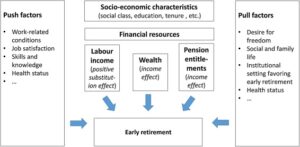Retirement: Germany Bold Bet_
Our last story tonight is about the R-word, and that’s retirement. People often joke about it, make extensive plans for it, and perhaps even worry about it. In fact, the last bit can overpower the rest. Look at the U.S. About half the households don’t have retirement savings in America. In the U.K., a third of Brits don’t have a retirement plan. And out of those who do, more than half think that their savings are not enough.

The same applies to more than half of Indians. So you get the gist. Is there a solution then?
Germany believes so. Germany wants people to start early. How early?
As young as six years of age. You heard that right. The German government wants children to start saving for their retirement from the age of six. They want to introduce an early start pension. In other words, an early retirement scheme. And here’s how it will work. Six to 18-year-olds who are enrolled in schools will be part of the scheme.
The government will receive 10 euros each every month. That’s about $11. The government will pay this money. 10 euros to every child, every month.6 to 18 years of age.
So by the time a child is 18 years old, they will have a total of 1,440 Euros. That’s about 1,600 US dollars. This money will be invested. So the children will also get their profits accrued on this investment. Once they are 18, they can add their earned money to the account.
A lot of the details are still not clear, like how will the money be invested, who will manage it, and so on. Nonetheless, it is a smart move. And I’ll give you three reasons why.
Number one, Germany’s age of retirement is 67, so savings will accumulate over the period of about 60 years. Secondly, this will be an automatic enrolment. No child will be left behind. And thirdly, yes, $1,600 may not sound like a lot of money, but it’s meant to be a good place to start, to teach young people about something crucial, long-term financial security.
It will raise awareness among children about money, investments, and savings. And that is a major goal of the program. It’s something that the whole world could do with financial awareness, financial literacy.The world over, only 34% of adults are financially literate. And this needs to change. In a world of economic uncertainty, rising costs of education, and problematic financial advice on social media, children are vulnerable, now more than ever. So financial awareness is crucial for them.

And this includes planning for retirement.
So should other countries come up with similar plans? Well, it depends. In Germany, about 700,000 children are born every year. 7 lakh children. Enrolling the first cohort of 6-year-olds will cost the country about $212 million a year.
This is an estimate, so the total over a span of 12 years will be about $1.7 billion at percentage of cost to German taxpayers, and it will differ from country to country. That said, this is hardly the only way to boost financial awareness early on. In India, many schools have incorporated financial literacy in their curriculum. Many U.S. states teach personal finance to students.
Americans also have something called baby bonds, in other words, publicly funded child trust accounts. The U.K. has child trust funds. This is a long-term tax-free savings account for children.
Israel has savings plans for every child. Think of it as a child allowance. So the strategies differ, but such plans are a seismic step. According to research, children form attitudes about money at a young age. They will not fully understand what is going on, but they are impressionable, they are curious. So teaching children how to invest or save can encourage smart money habits.
If children have the gift of time, save their invest early. It gives their money the best chance to compound and grow. After all, good money habits should not be a luxury and certainly not reserved just for the adults.
